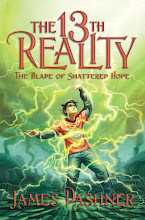I'm very happy to finally share some exciting news that has been brewing for a very long time. It's a story that was born even before The Maze Runner was written.
FOR IMMEDIATE RELEASE
Delacorte Press Books
Announces Prequel to James Dashner’s
New York Times Bestselling Maze Runner Trilogy
THE KILL ORDER to be published in August 2012
New York, NY, November 21, 2011— Fast on the heels of the publication of The Death Cure, the third novel in James Dashner’s New York Times bestselling trilogy, comes the news that Dashner will be releasing a prequel to the series, entitled THE KILL ORDER on August 14, 2012. The announcement and acquisition was made by Beverly Horowitz, Vice President and Publisher of Delacorte Press Books from Michael Bourret of Dystel & Goderich Literary Management. Krista Marino, Executive Editor with Delacorte Press Books, who worked with Dashner on The Maze Runner, The Scorch Trials and The Death Cure, is also the editor of THE KILL ORDER. Rights for the audiobook, which will be available on CD and as a digital download, were secured by Rebecca Waugh of Listening Library, a division of Random House, from Lauren Abramo of Dystel & Goderich Literary Management.
Before WICKED was formed, before the Glade was built, before Thomas entered the Maze, sun flares seared the earth and mankind fell to disease. THE KILL ORDER tells the story of that fall. “The prequel is something that has churned in my mind since before The Maze Runner was even complete. It's been hard to keep it a secret! I'm excited to finally share the news and I can't wait for my readers to see how it all began," shared Dashner. Since the inception of the series, fans have clamored to know more. THE KILL ORDER will answer their most burning questions.
There are currently one million copies of The Maze Runner books in print. All three volumes have been New York Times bestsellers. On October 11th the riveting conclusion, The Death Cure, was published and became an instant bestseller. In the novel, the truth behind WICKED was finally and thrillingly revealed. The first volume in the series, The Maze Runner, was published in October 2009 to both great anticipation and critical acclaim. Packed with intrigue and action, The Maze Runner was a hit upon publication, becoming a standout in the dystopian genre which has since exploded in popularity among young adult readers. The sequel, The Scorch Trials, followed in October 2010, with the story picking up a mere four hours after The Maze Runner left off. The heart-stopping sequel brought further acclaim and a widening fan base to the series.
James Dashner is also the author of the 13th Reality series. James was born and raised in Georgia, but now lives in the Rocky Mountains with his family. Visit him at www.jamesdashner.com or follow him on Twitter (@jamesdashner).
Delacorte Press Books for Young Readers is an imprint of Random House Children’s Books, a division of Random House, Inc., whose parent company is Bertelsmann AG, a leading international media company. Visit us on the Web at www.randomhouse.com/teens.
Visit TheMazeRunner.com & become a fan of The Maze Runner Trilogy on Facebook









